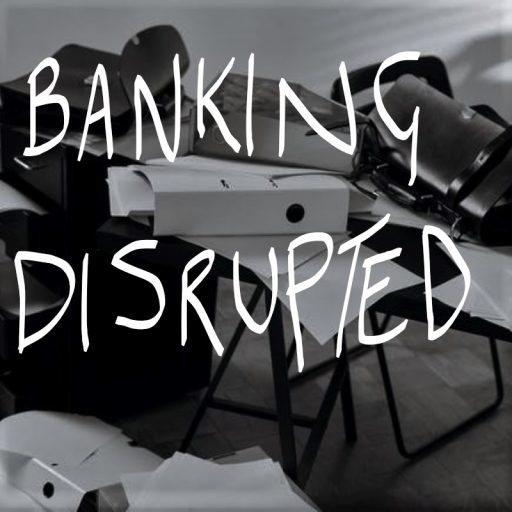Rob Moore, aka The Disruptive Entrepreneur, has created the must-read book of the year for entrepreneurs and scale-ups. In a world obsessed with perfection, his mantra is more attuned to how the fast-paced world of innovation works today…it is all about getting your Minimum Lovable Product (MLP) out there and perfecting it as you get traction. In Start Now Get Perfect Later (SNGPL), Moore shares some comprehensive insights, and practical advice for getting your MLP out there, and getting started.
Big Messages/Key Quotes:
- Be mindful of labels there is a propensity to eventually become the label. Awareness of how you describe yourself in terms of “I always …”, “I never….” Or “I can’t do…”. There is a big difference between an individual, and some of the behaviours that that individual may exhibit. Labelling yourself as a “procrastinator” since you may procrastinate some of the time is not accurate
- If you find yourself oscillating in between action and inaction, there is normally a bigger underlying factor at play. Typically, this could be a set of fears around taking risks, questioning your capability, thinking it works for others – but it would never work for you, burning time completing easier tasks at the expense of progress, letting other people down, or a fear of successful itself
- People spend huge amounts of time thinking about what others think of them. The key thing to bear in mind is irrespective of whatever you say, or do, or behave, somebody will always judge you. Hence it is much better live out of your authentic self, and not stress the small stuff
- There is no such thing as a bad decision. People make the best decision that they can, based on the available information.
- Attempt to declutter life through embracing well proven life hacks. Small things like saving destinations on the satellite navigation, broadly having the same wardrobe, bulk buying, removing any clutter from your home or work environment, and using checklists wherever possible
- There is always merit in having a grand vision for something you would like to achieve. In order to ensure a successful outcome, it is perhaps better to break the elephant up into bite size chunks. Creating these smaller units of activity that lead up to the larger ambition are essential to helping you to start the journey. This step avoids overwhelm and procrastination
- Do not be a control freak – there is an art in learning how to delegate, not micromanaging, and not stressing about the small stuff. To move forward it is critical to let go of things that serve to hinder, as well as continuously fretting about people or things you have little or no influence over
- When it comes to decision-making there are several things that can help to make effective decisions. These include getting access to those who have trodden this path before you, get mentors who can coach you, and create deadlines for all the fact-checking you need to complete. Listen more and talk less, as this will help to increase your level of knowledge. View mistakes as necessary elements of the journey, and not as setbacks
- The art of thinking about productivity is more in knowing what you should not be doing, versus what you should be focusing on. Spending time on low value or low outcome tasks is never a good use of time. It is much better to create systems and rituals to drive productivity and efficiency through simple mechanisms like keeping a journal that charts progress. When having a look at productivity it is better to prioritise all tasks you have before you start, start with the most important, and closeout with those that are perhaps least important. The four D’s system, which effectively allows you to rank all rate tasks as Delegate, Delete, Delay, before you Do is a particularly good framework for ensuring that focus is maintained on the most important activity
- To stay in a peak state of performance and productivity, self-awareness is a very necessary step in understanding when, and how you do your best work. Understanding your sleep cycle, work output timeline, exercise regime, nutritional intake, and the impact these have on your performance state is key. Knowing how to calibrate these keeps you in a peak performing state
- Be agile, which means work in sprints as this allows you to maintain healthy focus and productivity. Use the Pomodoro technique, where cycles of productivity are then followed by a regular break, to keep yourself energised throughout the day. This helps with focus and productivity (more information on the impact of brain chemistry, read Why the f*ck can’t I change? by Dr Gabija Toleikyte, , where the link between well-being and change is well researched, and explained in easy to understand terms)
- Environment and isolation have a big impact on productivity, as they shield you from unnecessary distractions. Knowing that you can yourself be part of the problem; burning time browsing online, or looking at non-productive social media, it is wise to trick yourself into action by not allowing distractions to feature in the working day.
- “Fear of Missing Out – FOMO is a strong emotion linked to low self-worth, lack of clarity and impatience. It will damage all progress and success, because you cannot go a fifth of the way down five oil wells and strike oil in any of them, no grass is green accept the grass you water…..when you feel FOMO is strong in you, notice it, and simply wait and allow it to pass”
- Do your research, get 75% ready, and hit the go button. Having undertaken 75% of the research needed for any venture, there is ample scope an opportunity to tweak as you go along. Get started, perfect later
- It is a common mistake to carry on ploughing forward with something just because it has been started as a venture. It is perfectly OK to change your mind on things, provided it is not something that occurs frequently. The ability to stop, evaluate, and change your decision is a strength not a weakness
- When it comes to self-sabotage there is also a need to manage the internal saboteur. The ability to ask some quality questions as to where specific emotions are coming from is a highly active, and useful way, of understanding what’s really driving the mindset. Asking yourself questions like where is this emotion coming from? What is likely to be the root cause of it? Why is it coming up with such a high degree of frequency? and how does this emotion benefit you?, are all great questions to ask
- Operate out of the principles of expansion and ethics. Stick to your word, and the ability to pay it forward when you can do so. This is all around the ability to do the right thing continually and consistently
- Usually what it comes to looking at a whole portfolio of its of decisions, there is normally one right way of moving forward, which is head and shoulders above anything else on the list. Trust yourself and your intuition – Deepak Chopra calls this Spontaneous Right Action SRA: “There is only one choice, out of the Infinity of choices available in every second, that will create happiness for you as well as for those around you…Spontaneous Right Action is the right action at the right moment. Is the right response to every situation as it happens “
- In conclusion all the above equates to investing time and not wasting it …
Why Read this book?
Rob Moore has earned his place on the New York Times Bestseller list, with a series of big hitting books under his belt. SNGPL is a must have business start-up manual, and very much written to cater for the fast-paced world we operate in today. Several key strategies to start ventures, stay in the right headspace, and drive productivity are shared with a hint of candidness. A non-nonsense guide for those looking to get started on a venture, or new career path, and are worried about taking the first step. Concise, and to the point, SNGPL is a great way of looking at the world of work, as well as improving life-clutter.




